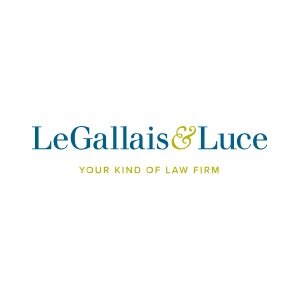Best Probate Lawyers in Saint Helier
Share your needs with us, get contacted by law firms.
Free. Takes 2 min.
List of the best lawyers in Saint Helier, Jersey
About Probate Law in Saint Helier, Jersey
Probate law in Saint Helier, Jersey, governs the process of administering the estate of a deceased person. This involves the distribution of assets, settlement of debts, and the validation of wills. In Jersey, the judicial system requires that a grant of probate be obtained before executors can deal with the deceased's estate. The probate process ensures that the deceased's wishes, as expressed in their will, are followed, or if there is no valid will, the estate is distributed according to the laws of intestacy.
Why You May Need a Lawyer
There are several situations where legal assistance in probate matters might be required:
- If the deceased had a complex estate involving international assets or businesses, a lawyer can ensure compliance with both local and foreign laws.
- Disputes among beneficiaries or claims by creditors can delay and complicate the probate process, necessitating skilled legal representation.
- In instances where the will is contested, due to alleged undue influence or testamentary incapacity, a lawyer’s expertise becomes crucial.
- Navigating the intricate procedural requirements and submitting the correct documentation to the Jersey Probate Registry might require professional help, especially for unfamiliar executors.
Local Laws Overview
Probate law in Jersey falls under the jurisdiction of the Court of Jersey. Some key aspects include:
- Applications for probate are made to the Probate Registry, part of the Royal Court of Jersey.
- The process involves appointing an executor who is responsible for administering the estate according to the terms of the will or the rules of intestacy.
- The Wills and Successions (Jersey) Law 1993 is the primary legislative document governing wills and succession.
- Jersey law recognizes different types of grants: probate (for when there is a will) and letters of administration (when there is no will).
- Specific laws apply to immovable property (real estate), which may not automatically become part of a deceased person's estate.
Frequently Asked Questions
What is probate, and why is it necessary?
Probate is the legal process of validating a deceased person's will and distributing their estate. It is necessary to ensure the deceased's assets are distributed according to their wishes or intestacy laws.
How long does probate take in Jersey?
The time taken can vary significantly depending on the complexity of the estate and any disputes that may arise. Generally, straightforward cases might be resolved in a few months.
Who is responsible for administering the estate?
The executor named in the will is responsible. If there is no will, the Royal Court appoints an administrator, usually a next of kin.
What happens if there is no valid will?
If no valid will exists, the estate is distributed according to the rules of intestacy outlined in Jersey law.
Can a will be contested?
Yes, a will can be contested on grounds such as lack of mental capacity, undue influence, or if the will was not executed properly.
Do I need to pay tax on inherited assets in Jersey?
Jersey does not have inheritance tax, but estate duties may apply, and beneficiaries should consider their tax situation in their resident jurisdiction.
What is the role of the Probate Registry in Jersey?
The Probate Registry processes applications for grants of probate and letters of administration. It ensures compliance with legal requirements for estate administration.
How do I find out if a grant of probate has been issued?
Interested parties can check with the Probate Registry for public records of granted probate, which provides a list of executors and basic estate details.
Can I administer the estate myself?
While it is possible to administer the estate yourself, it is often beneficial to seek legal advice, particularly if the estate is complex or includes contentious issues.
What happens if the executor fails to act?
If an executor fails to act, beneficiaries or next of kin can apply to the court to appoint a substitute or compel the executor to renounce their position.
Additional Resources
For those seeking more information on probate in Jersey, consider consulting the following:
- The Royal Court of Jersey and its Probate Registry for guidance and procedural information.
- Local law firms specializing in wills, probate, and estate planning.
- Citizens Advice Jersey, which can provide general information and direct individuals to professional resources.
Next Steps
If you require legal assistance in probate matters, consider the following steps:
1. Contact a lawyer experienced in Jersey probate law to discuss your specific situation and obtain tailored advice.
2. Gather relevant documents, including the death certificate, will, and any known details about the deceased’s assets and liabilities.
3. Identify whether you are named as an executor in the will, as this will determine your responsibilities in the probate process.
4. Be proactive in resolving disputes among beneficiaries, as early mediation can prevent costly and lengthy court proceedings.
5. Monitor deadlines, such as those for submitting documentation to the Probate Registry, to ensure compliance and facilitate a smoother process.
Lawzana helps you find the best lawyers and law firms in Saint Helier through a curated and pre-screened list of qualified legal professionals. Our platform offers rankings and detailed profiles of attorneys and law firms, allowing you to compare based on practice areas, including Probate, experience, and client feedback.
Each profile includes a description of the firm's areas of practice, client reviews, team members and partners, year of establishment, spoken languages, office locations, contact information, social media presence, and any published articles or resources. Most firms on our platform speak English and are experienced in both local and international legal matters.
Get a quote from top-rated law firms in Saint Helier, Jersey — quickly, securely, and without unnecessary hassle.
Disclaimer:
The information provided on this page is for general informational purposes only and does not constitute legal advice. While we strive to ensure the accuracy and relevance of the content, legal information may change over time, and interpretations of the law can vary. You should always consult with a qualified legal professional for advice specific to your situation.
We disclaim all liability for actions taken or not taken based on the content of this page. If you believe any information is incorrect or outdated, please contact us, and we will review and update it where appropriate.











